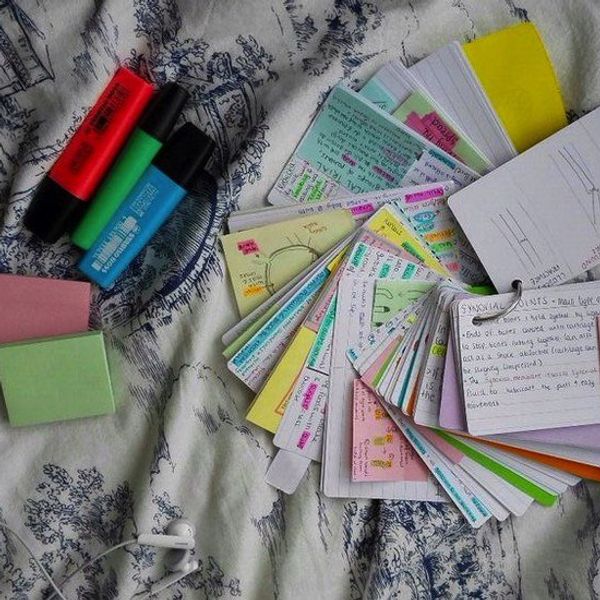The transition from high school to college is new and exciting, but it's important that you don't forget why you're there in the first place. Even if you graduated at the top of your class in high school, chances are you'll have to adjust your study habits at some point during your freshman year. When that time comes, hopefully you will find these ten study tips useful:
1. Go to class.
Attending classes consistently may not always seem entirely necessary, but doing so will benefit you in the long run. You won’t have to worry about falling behind, and studying for important exams will be easier with your own notes.
2. Find your place to study.
Whether it’s your campus library or a dorm study lounge, try out a few different places when doing your schoolwork to decide where you are the least distracted and the most productive. Go to this place only to do schoolwork, so your mind is trained to enter "work mode" whenever you are there.
3. Vary your study techniques.
Many students make the mistake of relying on passive review, which involves reading and re-reading notes and assignments as a strategy for studying. This technique fails to engage students with the material being reviewed and often becomes a mindless practice after a short amount of time. Instead, try making flashcards, copying notes, and creating outlines to study.
4. Stay organized.
Use a calendar to keep track of due dates and exams, and a daily planner to organize your day-to-day activities. Before you go to bed each night, make a list of what you have to do the next day. I keep these lists in my iPhone’s “Notes” app, so I can easily add and/or remove tasks as each day progresses.
5. Ask for help before it's too late.
You may feel reluctant to approach your professors with questions, but doing so could save hours you would otherwise spend attempting to understand the material on your own. Professors provide office hours for a reason, so don’t be afraid to use them to your advantage.
6. Sleep!
Trust me, there's a huge difference between seven and eight hours of sleep in college. You don't have to be in bed by 11 every night, but be mindful of when you have to wake up the next morning and of how much you have to do the next day if you choose stay up later.
7. Form study groups.
Even if you prefer working independently, studying with other students from your classes is worthwhile. They could understand a topic that you have struggled with in the past, and listening to their questions may help you view a problem or concept from a different perspective.
8. Ask your professor for an exam's format.
How you study for a multiple-choice exam is going to differ from your approach to studying for an exam with only short-answer essay questions. Asking for a test's format will provide you with a better understanding of what exactly your professor’s expectations are, in addition to greater confidence knowing what you can expect on the day of the exam.
9. Unplug and disconnect.
Whether you are finishing a math problem or writing the thesis for a research paper, the task will be much easier if you aren’t checking your phone every five minutes. I like to put my phone on silent and turn it over, so the constant buzzing of group texts and flashing Snapchat notifications can’t distract me.
10. Break a large task into smaller, more manageable tasks.
This strategy not only combats stress, but also prevents procrastination. "I have a five-page essay due next week" sounds a lot worse than "I have to write the introduction tonight for an essay due next week."





















